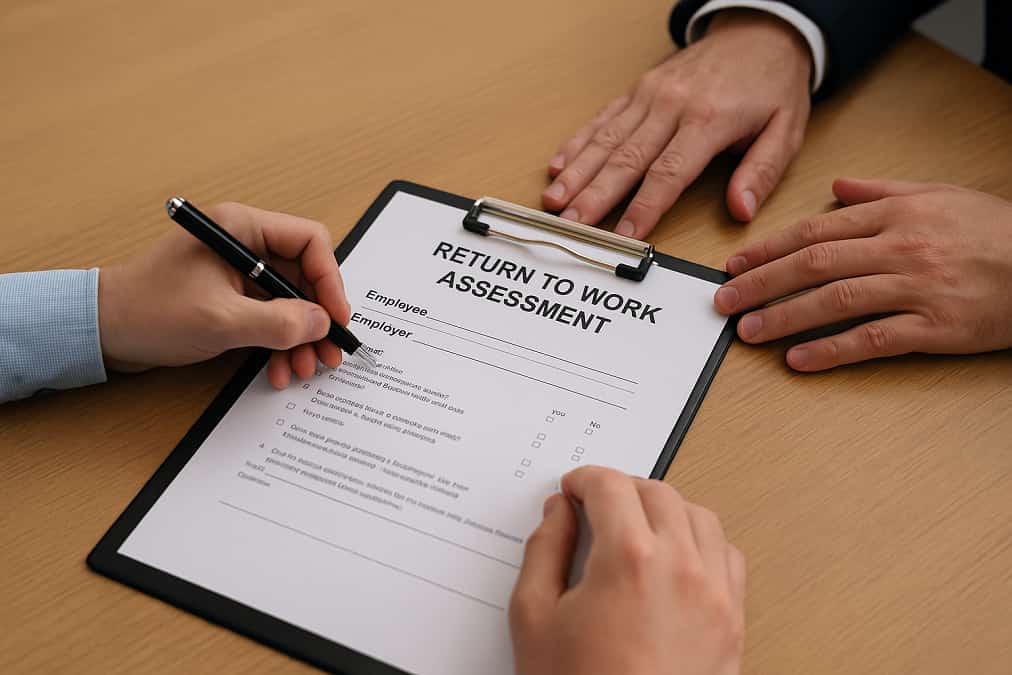The Workers Union has welcomed growing calls for urgent reform to the way workplace sickness and health management are approached in Britain. A major new report, Keep Britain Working, led by former John Lewis chairman Sir Charlie Mayfield, has called on ministers to spearhead a “fundamental shift” in tackling ill health among the nation’s workforce — a problem now seen as one of the biggest drags on growth, productivity, and opportunity.
At the heart of the report lies the proposal for a Healthy Working Standard, designed to modernise how illness prevention, support, and return-to-work processes are handled. Alongside this, it recommends the creation of ‘stay-in-work’ and ‘return-to-work’ plans that may ultimately replace the traditional fit note, placing a renewed emphasis on early intervention, employer responsibility, and collaboration across the public and private sectors.
Over 60 major organisations — including British Airways, Google, Sainsbury’s, and Holland & Barrett — have already committed to becoming “vanguards” in testing and shaping these new models over the next three years.
Sir Charlie Mayfield warned that Britain is “sliding into an avoidable crisis”, with ill health becoming a major barrier to economic recovery. He added:
“Employers are uniquely placed to make a difference, preventing long term sickness health issues where possible, supporting people when they arise, and helping them return to work. If we keep Britain working, everyone wins – people, employers, and the state.”
The review’s findings reveal a worrying picture. More than one in five working-age adults are now out of work, with over 800,000 additional people leaving employment since 2019 due to health problems. This figure could climb by another 600,000 by 2030 unless decisive action is taken.
Employers, meanwhile, are losing an average of £120 per day in profit due to sickness absence — the highest in 15 years — creating ripple effects in productivity, staff morale, and business sustainability.
Work and Pensions Secretary Pat McFadden endorsed the findings, noting that keeping workers healthy is “essential for growth and opportunity”. He confirmed that employer-led Vanguards will form part of the government’s Plan for Change, signalling a shift toward partnership with businesses to drive health-led growth.
The review further recommends the establishment of a Workplace Health Intelligence Unit (WHIU), which would collect and analyse health data, offer evidence-based insights, and guide future incentives and policy reforms. The WHIU is expected to act as the “central driving force” in building a national framework for workplace health improvement.
However, not all reactions have been favourable. The British Occupational Hygiene Society (BOHS) criticised the report as “a missed opportunity”, arguing that it fails to address the physical realities of dangerous working conditions. They warned that “friendly chats and referrals” will not protect workers from the physical and environmental hazards that remain prevalent in many industries.
By contrast, the Faculty of Occupational Medicine hailed the review as a “much-needed call to action”, while Make UK urged the government to back reforms with practical measures such as tax relief for businesses investing in occupational health.
Across the board, one message is clear: the UK’s workforce is struggling under the weight of preventable ill health, and without urgent intervention, both workers and employers will continue to pay the price.
The Workers Union supports all initiatives that promote worker health, inclusion, and fairness. Ensuring that every employer — from the largest corporation to the smallest local business — has access to clear, affordable workplace health guidance is crucial for the future of Britain’s economy and its people.
A healthier workforce is not just an economic necessity — it is a moral imperative. As the government considers its next steps, the voices of Britain’s workers must remain at the centre of policy design and implementation. The future of work in the UK will depend on whether we can truly build a system that keeps our people well, supported, and in work.




